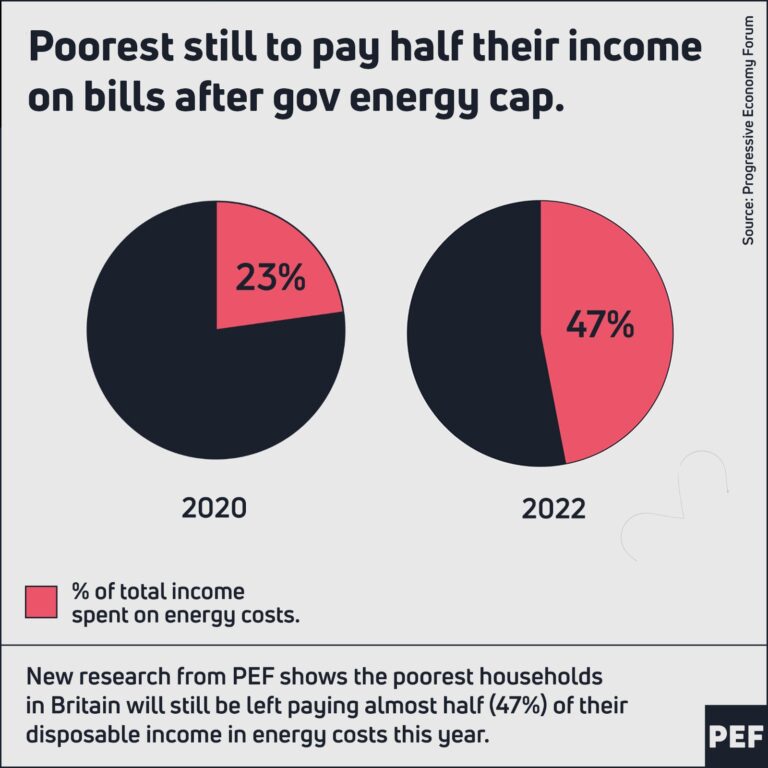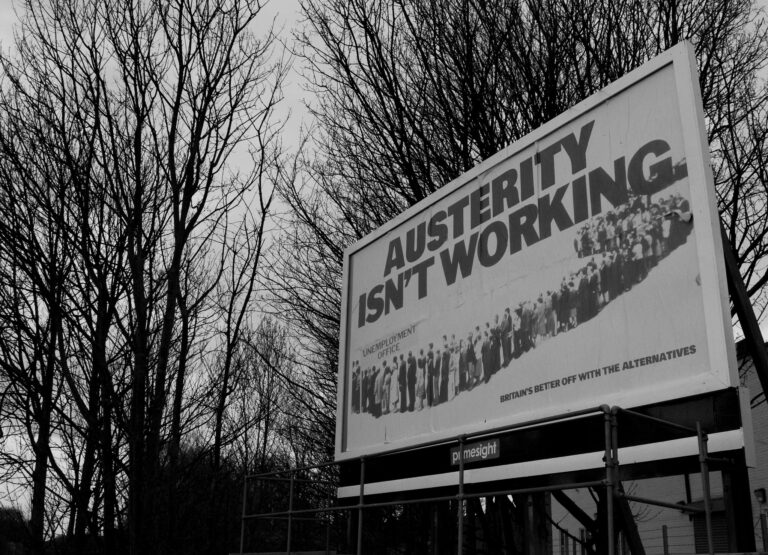The UK economy is based on an overlapping set of dependencies on private debt – of financial institutions (as a major profit centre), of households (to sustain their standard of living), and of governments (to expand economic activity).
What makes households a central pillar of debt-led growth is the amount of money they send each month into global financial markets, either as payments on debts like mortgages and consumer loans, or as income claims on debt securities.
From this constellation of forces, debt has become a cure-all for governments seeking to expand employment and investment; financial institutions seeking capital gains, and the wealthiest segment of households with significant financial assets. But, at the same time, debt has become a poison pill for an ever-growing number of households by destroying their financial security.
As incomes have stagnated (and, for some, even declined in real terms over the last decade), the demand for debt to plug the gap has grown and the burden of repayment has become more onerous.
Since the 2008 financial crisis, unconventional monetary policy and austerity have prevented any systemic reforms of the UK economy to end its chronic dependence on debt. Instead, debt dependence became a strategic silence.
Everyone knows household debt is a major cause of entrenched economic malaise but no one in a position of power is willing to do anything about it. In a cruel political sleight of hand, household debt is reduced to a personal problem or failing, ignoring the stark reality that the UK economy is as dependent on household debt as individuals are.
Cancelling household debt
A comprehensive package of debt cancellation measures available to households will target harmful debt to provide relief to those that are struggling. By extension, this will create uplift in the economy and society, as those who were once struggling to pay old debts can spend and contribute to the real economy instead.

The package will involve rewriting existing ways that debt is written down and written off. It would start by creating a household debt cancellation fund, with the same amount that was offered to bail out the banks ten years ago as its capital. That’s roughly, £500 billion cash and £2 trillion in guarantees in the UK.
My proposal is to use the £2 trillion in credit guarantees to fund a long-term refinancing operation for consumer and mortgage debt loans that have started since 2009. The £500 billion in cash in the household debt cancellation fund will be used to pool together old (originating before 2007) and onerous (those that cause harm) debts for a negotiated settlement with lenders.
This method targets specific types of debt, rather than specific populations of debtors, to amplify the positive impact of debt cancellation across the economy and society.
Everyday experiences
Understanding the effects of debt and locating the harm it can generate begins with the everyday life experiences of people who have personal experience of debt dependence. They cannot buy a home without taking on more debt than they can afford. They can only get a university degree by taking on more debt than they will earn when they graduate. They borrow to get through a family member’s illness or period of unemployment. Credit cards get them to the end of each month – or they live in their overdraft.
For many, debt is a necessity, not an option. Others are not adversely affected by debt; they tend to be older, live near a major city, or they have wealthy parents. For the baby boomer generation, and even most of Generation X, everyday economic life is very different. These people bought a house with a reasonable amount of debt and, in return, have seen its value triple (or more) over their lifetimes; getting a university degree was affordable because they didn’t need loans, and when they graduated, jobs were plentiful and paid well.
Many recognise that times have changed. Debt was once an option, a choice, something that could be managed with buoyant incomes and would deliver wealth gains. Today, debt is a necessity and the prospect of ever being free from it, for many people, is very unlikely.
Cancelling a significant portion of the enormous debt overhang will end austerity on the macroeconomic level by providing households with much needed debt relief. This is the most direct way of ending the financial crisis that continues to grip households, one which means they must simultaneously continue to pay their debts and absorb both the shock of economic downturn and the costs of austerity.
Let’s not forget that the lenders and the entire financial sector received hefty bailouts and direct financing from the central bank to protect them from the consequences of the financial crisis they caused. I contend that abolishing household debt would be more effective than current monetary policy. It would also better enable an end to the UK economy’s long-term dependence on debt.
This article is part of our 100 Policies to End Austerity series, and is cross-posted from The Conversation.








